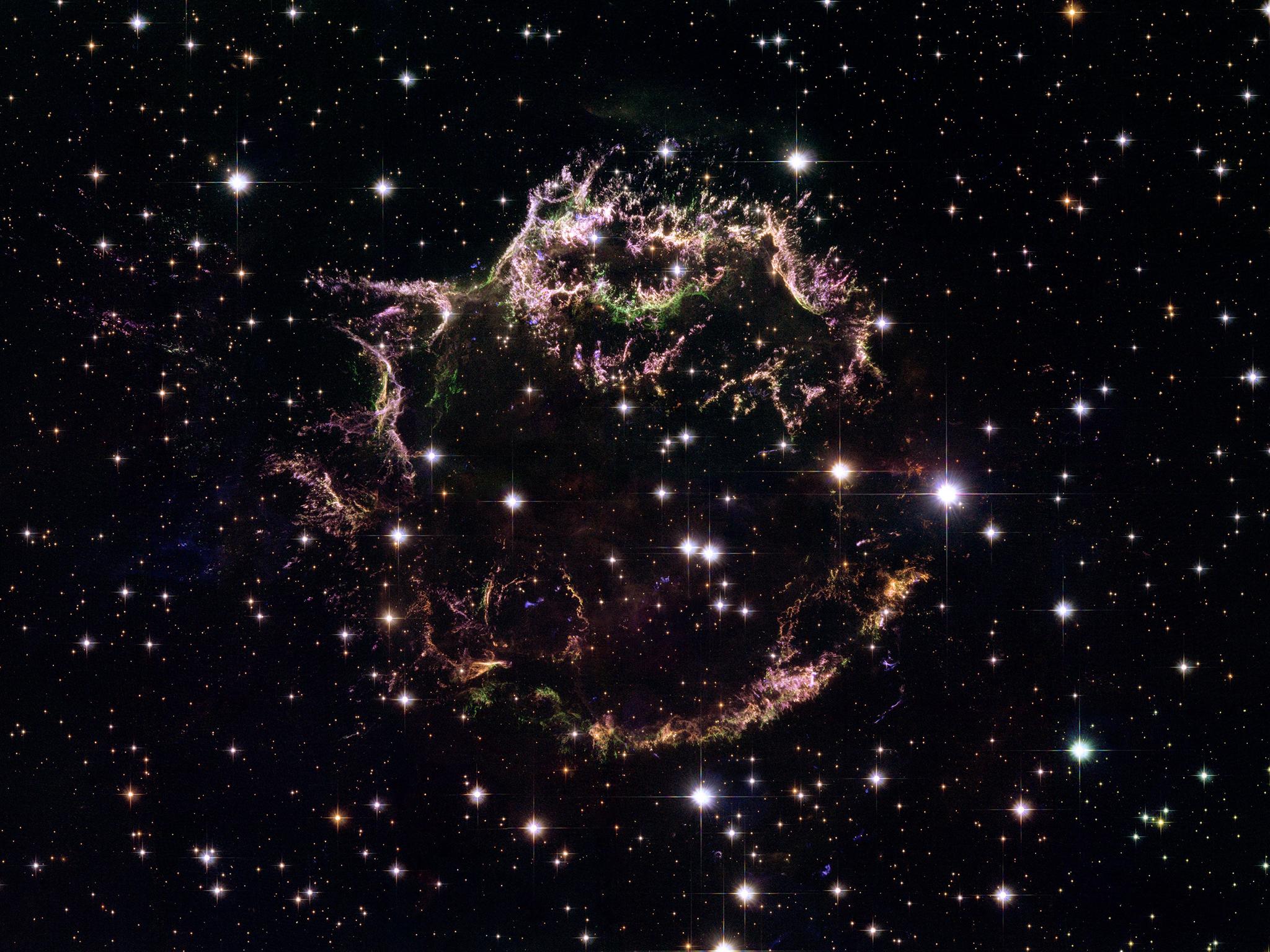Universe is expanding far faster than expected, potentially causing huge problems for physics
‘Maybe the universe is tricking us,’ one of the authors of the paper has said

The universe is expanding far quicker than we’d have thought – and might show a problem with the most central parts of our understanding of physics.
The discovery could prove a challenge to Albert Einstein’s theory of relatively, which had for the last century stood unchallenged as one of the fundamental parts of our understanding of the universe.
It could also upset our ideas of what sits in the 95 per cent of the universe that doesn’t emit light or radiation, according to scientists.
The universe is expanding between 5 and 9 per cent faster than expected, according to the Nasa and the European Space Agency.
"Maybe the universe is tricking us," said Alex Filippenko, a University of California, Berkeley astronomer and co-author of an upcoming paper about the discovery.
The universe's rate of expansion does not match predictions based on measurements of the remnant radiation left over from the Big Bang explosion that gave rise to the known universe 13.8 billion years ago.
One possibility for the discrepancy is that the universe has unknown subatomic particles, similar to neutrinos, that travel nearly as fast as the speed of light, which is about 186,000 miles (300,000 km) per second.
Another idea is that so-called "dark energy," a mysterious, anti-gravity force discovered in 1998, may be shoving galaxies away from one another more powerfully than originally estimated.
"This may be an important clue to understanding those parts of the universe that make up 95 percent of everything and that don't emit light, such as dark energy, dark matter and dark radiation," physicist and lead author Adam Riess, with the Space Telescope Science Institute in Baltimore, Maryland, said in a statement.
Riess shared the 2011 Nobel Prize in Physics for the discovery that the expansion of the universe was speeding up.
The speedier universe also raises the possibility that Einstein's general theory of relativity, which serves as the mathematical scaffolding for calculating how the basic building blocks of matter interact, is slightly wrong, NASA said.
Riess and colleagues made their discovery by building a better cosmic yardstick to calculate distances. They used the Hubble Space Telescope to measure a particular type of star, known as Cepheid variables, in 19 galaxies beyond our own Milky Way galaxy.
How fast these stars pulse is directly related to how bright they are, which in turn can be used to calculate their distances, much like a 100-watt light bulb appears dimmer the farther away it is.
The research will be published in an upcoming edition of The Astrophysical Journal.
Additional reporting by Reuters
Join our commenting forum
Join thought-provoking conversations, follow other Independent readers and see their replies
Comments